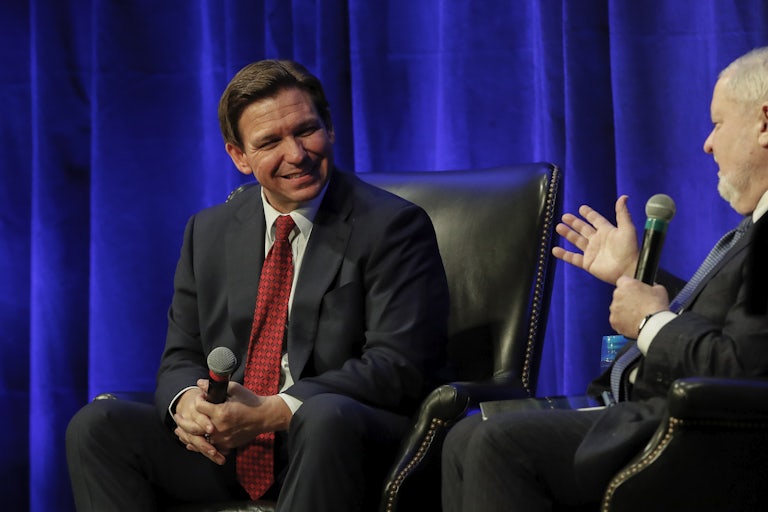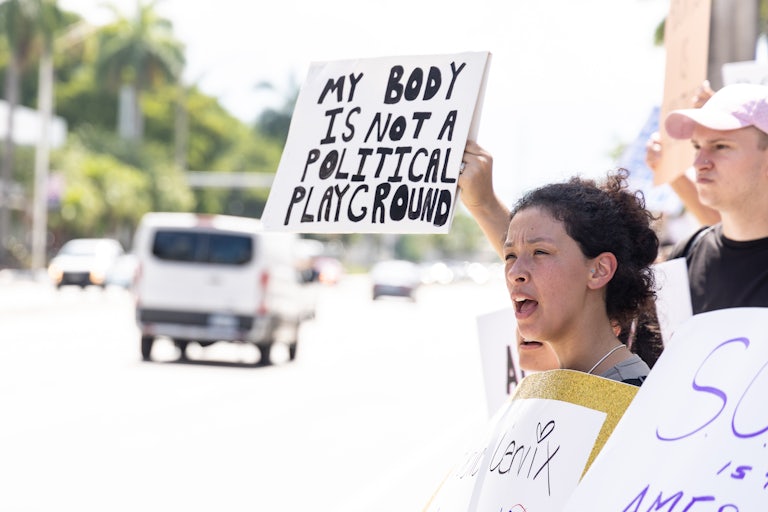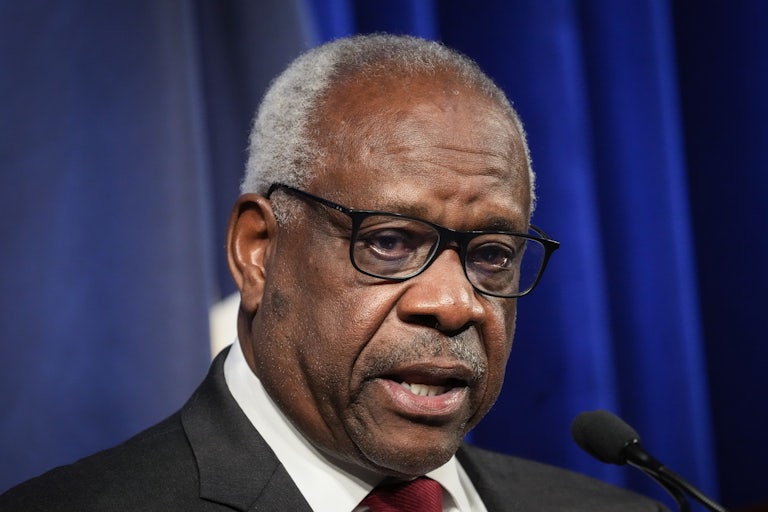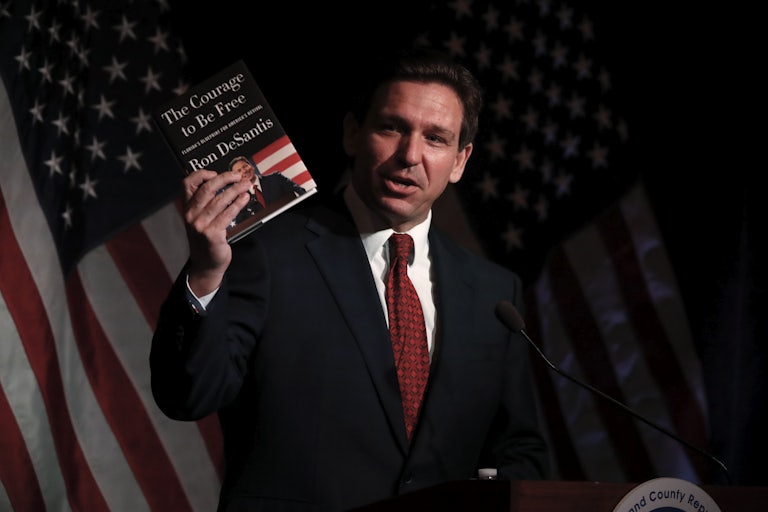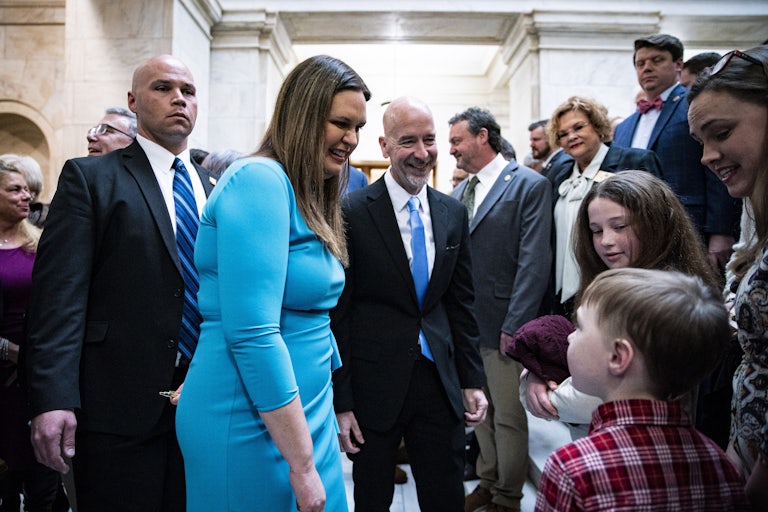Tennessee Republicans Kill Red Flag Bill That Could Have Stopped Nashville Shooting
The move comes after thousands of protesters demanded lawmakers take action on gun control.
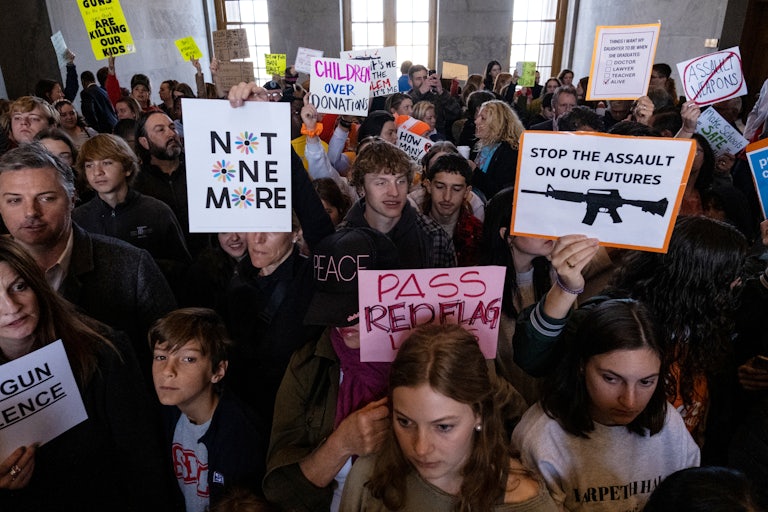
On Thursday, Tennessee Republicans had their first opportunity to show Democrats, Tennesseans, and the country their willingness to work together to enact baseline gun safety reform.
And they refused to.
Democrats had filed a “red flag” bill in the wake of the Nashville shooting that could have prevented the shooting in the first place. Tennessee Republicans had shut down a similar bill two years ago. But yet again, House Republicans blocked the bill, voting it down in committee on Thursday. (Tennessee’s supermajority of Republicans means that every committee vote largely reflects their own will.)
Earlier this week, Tennessee’s Republican Governor Bill Lee suggested he would support reforms like a red flag law—perhaps buoyed in part by his personally losing two friends in the Nashville school shooting. But it seems even that is not enough for him to flex any political will on his fellow Republicans.
Republicans’ rejection of the opportunity came after the Nashville school shooting that left three children and three adults dead, after the ensuing protests that brought thousands of people onto the streets, and after Republicans were exposed nationwide for their deeper corruption after expelling two Black Democratic representatives (who have since been reinstated) for standing with the protesters.
“The question is who has the ball; at some point, somebody has to take ownership for this being successful,” Senate Minority Leader Jeff Yarbro told local affiliate WKRN. “If we are not going to see leadership in the House or the Senate or the governor sort of stand up and say, ‘I am not just encouraging this as a good idea, but I am going to put my political capital on the line to get it done,’ then we are not going to see it get done.”
Republicans, for their part, just seem uninterested. It appears their energy is dwindling after being placed under new scrutiny for their brazen campaign to expel Democrats Gloria Johnson, Justin Jones, and Justin Pearson after the trio interrupted House proceedings to protest inaction on gun violence, in solidarity with the thousands of Tennesseans who had been protesting right outside the Capitol building.
After Republicans successfully expelled Jones and Pearson, thousands continued protesting, while revelations of the Republicans’ corruption came to the forefront. They have wielded their supermajority to make up their own rules and kill bills at a moment’s notice on no coherent basis. While expelling Jones and Pearson for breaches of “decorum,” they have not expelled members committing far worse, severe violations, like child molestation, or a member allegedly assaulting Jones amid the protests. And now, reporting has shown that House Speaker Cameron Sexton has lied about his place of residence and taken advantage of taxpayer-funded travel allowances, in violation of the state Constitution.
“They are taking on a lot of water, and they want to get out of here as soon as possible, and it’s damage of their own making,” Democratic Representative John Ray Clemmons told WKRN.

